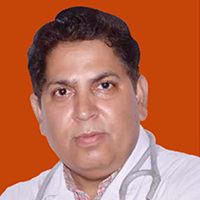Home Remedies for Headache

A pounding pain that leaves us gripping our heads in complete agony - this is how a headache feels when it uninvitedly strikes at the most inconvenient times, throwing everything off. Headaches can be a result of long hours of screen time, pressure to meet a deadline, the unsaid burden of modern life, or a severe migraine. In this throbbing pain, our first instinct tells us to just pop a painkiller and make it go away. As tempting a solution as painkillers might seem, the truth is they can do more harm than good.
Do you know? Many home remedies for headaches might already be silently sitting within your home, waiting to bring ease - from herbal teas to essential oils.
What is considered a headache?
A headache is commonly defined as persistent pain and discomfort in the head, scalp, or neck. It ranges from a mild ache to intense pain, lasting anywhere from just a few minutes to several hours. Headaches are commonly classified into various types, each with distinct characteristics:
Tension headache
The most common type that results from stress, anxiety, or muscle strain in the neck and shoulders and feels like a tight band around your head.
Migraines
Intense, throbbing pain often accompanied by nausea, vomiting, and sensitivity to light and sound.
Cluster headaches
Severe, sharp headaches that occur in cycles and are often centered around one eye.
Sinus headaches
This is the result of sinus infections or allergies, causing pain in the forehead and cheeks.
What causes a headache?
Headaches primarily occur due to the interaction of signals between the brain, blood vessels, and surrounding nerves. When a headache strikes, various mechanisms trigger specific nerves that influence muscles and blood vessels. These nerves then send pain signals to the brain, resulting in the sensation of a headache. Also, there can be several factors that can be blamed for headaches, let’s explore some of the most common ones:
Stress and tension: Anxiety, emotional stress, or physical tension in the neck and shoulders can trigger tension headaches. The tightened muscles around the head and neck can radiate pain throughout the skull.
Dehydration: If your body is dehydrated, it can cause the brain to shrink slightly, leading to pain.
Hormonal changes: Hormone levels often fluctuate, especially in women, which can lead to headaches and is mostly seen during menstruation, pregnancy, or menopause.
Poor sleep: Lack of sleep or irregular sleep patterns can result in tension and migraines.
Dietary triggers: Foods and drinks like alcohol, caffeine and processed foods can trigger headaches in some people. Additionally, food deficiencies in nutrients like magnesium, zinc, vitamin D can also contribute to headaches.
Environmental factors: Extremely bright lights, loud noises, strong odors, and a sudden change in weather can trigger headaches among individuals who are a little sensitive.
Sinus issues: Sinus infections or congestion can cause pain in the forehead, cheeks, and around the eyes.
Effective home remedies for headache
Headaches can derail your day, but there are simple and effective home remedies that can provide fast relief. So, if you're looking for natural ways to ease the pain, here’s a list of home remedies for headaches:
Chamomile tea
The calming properties of chamomile tea have a soothing effect leaving your mind and body relaxed. Known for reducing inflammation, it helps alleviate pain linked with tension headaches or migraines. Drink the tea slowly, inhale its calming aroma, and let it work its magic.
Lavender oil
Scientific data is proving that the scent of lavender can actually reduce the frequency and severity of migraines. Use its calming properties by inhaling the aroma using a diffuser, inhaling steam with a few drops in hot water, or applying diluted oil to your temples, wrists, or neck.
Cold or warm compress
For tension headaches, apply a warm towel to the neck and shoulders for 15-20 minutes to relax tight muscles. For migraines, use a cold pack on your forehead for 10-15 minutes to numb the pain and constrict blood vessels, reducing inflammation.
Ginger tea
Ginger tea functions by blocking prostaglandins, chemicals that cause pain and inflammation. This tea provides relief, especially if you feel nauseous, as it also has stomach-settling properties. Make ginger tea by boiling fresh ginger slices in hot water and then sip slowly.
Caffeine
Caffeine can be your calm in the chaos, however, you must only drink it in moderation. It helps to constrict blood vessels, which can reduce the pain caused by headaches.
Magnesium
This might come as a surprise for many but magnesium deficiency is linked to migraines and tension headaches. Magnesium helps regulate blood flow and supports proper nerve function. Eat magnesium-rich foods like spinach, almonds, avocado, and bananas.
Massage and relaxation techniques
Gently massages on the forehead, neck, shoulder, and scalp can relieve muscle tension, and stiffness and improve circulation, which may help reduce headache pain. Relaxation techniques like deep breathing, yoga, or meditation help reduce stress levels and work effectively against headaches.
Stay hydrated
Drinking water is perhaps one of the most overlooked yet effective remedies for managing a headache. Dehydration can cause the brain to shrink slightly, which triggers pain. So, the next time a headache strikes, drink plenty of water to help rehydrate your body.
Sleep it away
Headaches are often triggered by lack of sleep or poor sleep quality. A restful night's sleep can help alleviate the pain and leave you feeling rejuvenated.
Cinnamon
Cinnamon improves circulation and eases tension in the body. You can either make a paste by mixing cinnamon powder with water and applying it to your forehead, leaving it for 20 minutes or you can drink cinnamon tea.
Lifestyle and dietary recommendations for managing headaches
Managing headaches when they occur is important, but adopting a healthy lifestyle and dietary changes can be even more effective in preventing them from happening in the first place.
Take a break from screens
Excessive screen time strains the eyes and neck muscles, leading to headaches. There’s a famous 20-20-20 rule: every 20 minutes, look at something 20 feet away for 20 seconds - this gives your eyes a break. Along with this take a moment to stretch your neck and shoulder to release the tension.
Exercise regularly
Being active helps improve circulation which in turn releases endorphins (natural pain relievers), and reduces muscle tension. Indulge yourself in at least 30 minutes of moderate exercise, it can be as simple as walking or cycling.
Eat regular, balanced meals
Keeping long gaps between eating or completely skipping meals can lower blood sugar levels, leading to headaches. Eat small, balanced meals throughout the day to maintain healthy sugar levels - eat a mix of protein, healthy fats, and fiber.
Consume omega-3 fatty acids
Their anti-inflammatory properties can help reduce the severity of headaches, particularly migraines. Include foods like fish, flaxseeds, walnuts, and kiwis in your diet.
Avoid junk food
Processed foods often have preservatives, artificial sweeteners, or additives that can
trigger headaches. Reducing their intake can lower the chances of headaches related to food sensitivities or additives.
So along with following simple home remedies for headaches, making these small lifestyle and diet changes can work very well for managing both the frequency and intensity of headaches.



 Prev
Prev































































